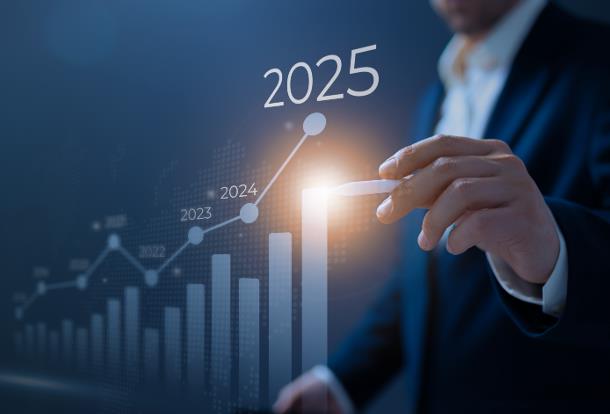ChinaTravelNews, Ritesh Gupta - Up-selling training to a property’s front desk team members, backed up by an astute data strategy, is key to incremental revenue and stepping up loyalty.

The going hasn’t been easy for hotel companies in China, considering that revenue growth and RevPAR have remained under pressure owing to sustained macroeconomic challenges over the last couple of quarters.
In this context, if any organization can increase the average order value via up-selling, it would lend stability to the overall financial performance.
It needs to be noted that hotel organizations are assiduously growing their loyal member base. In case of Homeinns Hotel Group, its CEO David Sun acknowledged that group had a total of 47 million unique non-corporate members under its frequent guests program at the end of the third quarter. Importantly, the figure grew from 38.6 million at the end of Q2, and members contributed 63.9% of room nights sold during the June-September quarter. So clearly there is a big opportunity to garner incremental revenue.
Approach – relying on data
Assessing the significance of the up-sell proposition or selling a higher priced product/ service, and how to make the stay better, Jun Miao, Senior VP of Operation and Sales, Homeinns says a lot of emphasis are on identifying a customer, their behavior, their loyalty and eventually adding value to their association with the brand.
“We now consider up-sell as an opportunity to offer value-added services to customers based on our membership system and member loyalty plan. In the up-sell process, Homeinns’ overall revenue will increase and at the same bring more value (to our guests). In addition, hotel operation revenue management is still a constantly developing subject. Nowadays we have more ways to evoke positive feeling among customers,” shared Miao.
Miao mentioned that data about customers is being collated from various sources, and the organization is also refining its own ability, improving its infrastructure. For instance, Homeinns’ new PMS system now includes two parts: the statistic analysis and tracking management of sales data – to better understand the behavior of guests, says Miao. The team is looking at existing distribution channels, room reservation system etc. and other third-party platforms to gather information about guests, and accordingly presenting them relevant options to up-sell.
Establishing a data infrastructure and analyzing it is also necessary to support the requirements of certain brands. For instance, Homeinns’ mid-scale brand Yitel features dedicated guest relations managers delivering personalized services. Another mid-scale brand, Homeinn Plus, features mobile app control of in-room facilities. Now if as a guest, while using mobile app, I am enticed to buy any in-room amenity be it for from e-platform (Youxuan) or in-room entertainment, it would only end up as incremental revenue for the property. So knowing the preferences of guests via apt data strategy is must for hotels to target any up-sell.
Also, the group has already set up its B2C platform, youxuan.homeinns.com (embedded in Homeinns Hotel Group’s website). It offers Homeinns’ loyalty members and other customers online purchase access to selected travel and lodging centric products. For instance, this platform featured the sale of moon-cakes, which are traditional Chinese pastries generally eaten during the mid-Autumn Festival.
“In the past, Homeinns used to offered monotonous products and service experience, and paid more attention to normalization and uniformity,” says Miao, who added such approach is evolving with Yitel and Homeinn Plus. “From the perspective of service, we don’t want our customers (to) feel that the recommended products will “degrade” their experience; from the perspective of sales, we hope the content of up-sell can match brand positioning more accurately rather than follow the fashion blindly.”
Acting on data and creating magic
Klaus Kohlmayr, chief commercial officer, TSA Solutions points out that data comes into play at all stages of the cycle:
1) To identify the guests with the highest probability of converting to a higher room category
2) To identify which room product is best matched to that particular guest and,
3) To measure and manage performance of the front desk team - and fine-tune the approach.
It is critical to remove human guesswork from the identification process.
Kohlmayr says importantly the final “sale” still happens between the front desk associate and the guest at check in. If the associate does not have the confidence and skills to have an upsell conversation with the guest then the hotel will not be successful. “We firmly believe in the right balance between high-tech and high-touch, especially in the hotel industry,” he adds.
From a hotel company’s perspective, Miao says the timing is very important.
“When customers book rooms, we tend to offer them information through the push notification approach. For instance, we may notify customers, “the hotel now launches a new Homeinn Plus where you can enjoy the brand new Five-sense Experience Room”. This way customers can learn more about our products and the latest news on products, thus stimulating consumption,” said Miao. After they check- in, guests are enticed to use e-business platform in public areas and guest rooms. “Practice proves that the up-sell is likely to happen after checking in, because customers will have more time to learn about products in rooms and then generate a desire to purchase easily.” Also, the group has placed its QR code in public areas of hotels to increase the convenience for customers to buy updated products.
Kohlmayr says there are two key components to a successful up-sell:
- What are the guests’ (unexpressed) needs for a stay? Typically, a guests needs change dramatically between the time a room is booked and the time the guest walks into the hotel. Identifying and anticipating potential mismatches between what the guest has booked and what their actual product needs are is the critical first step.
- Once the mismatch has been identified, the front desk associates must be trained, coached and mentored to be able to help the guest agree that they will have a better stay experience with a more expensive product than they originally booked. Kohlmayr says the magic happens when the guest walks away having paid a bit more than originally anticipated and at the same time is highly satisfied because the front desk associate correctly understood the need and gave the guest matching product. He added that proper up-selling “can increase online reputation by 25%”.
So is there any benchmark for successful up-selling? “In China, a hotel can generate over 2.5% of RevPAR,” says Kohlmayr. The focus is on differentiation such as room size, views, service level for higher room type, amenities, club floor benefits and value added packages to include not only rooms but other products of the hotel. However up-selling is not appropriate when the guest is in rush or clearly not interested in the “experience.
All in all, upsell is about selling the right product to the right guest at the right price and right time, the goal is to drive more revenue but also increase guest satisfaction and brand loyalty.




